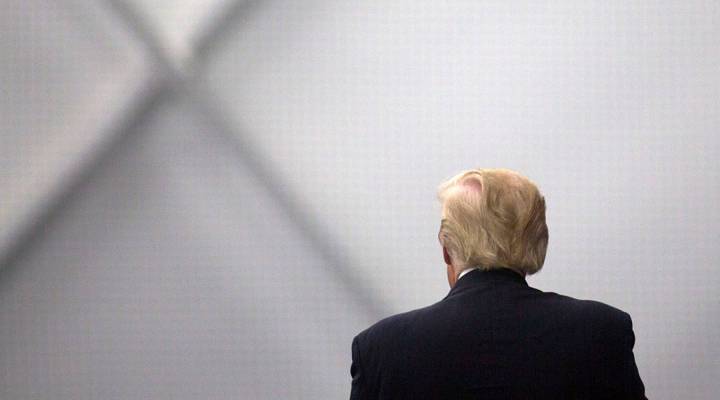
When business and politics don’t mix

It’s a mantra you’ve heard from presidential candidates many times over the years: I’m a business person. I’ll run this country like my business, and everything will be great. We’re not just talking about Donald Trump here. We’ve had a number of candidates running on their business records, with varying degrees of success.
Not everyone thinks Donald Trump is the quintessential businessman. Be that as it may, he is running on his business record.
There’s a plus side to doing that. And a minus side. On the plus side:
“There is sense for many Americans that politicians and government is inefficient,” said Julian Zelizer, a professor of history and public affairs at Princeton University. “There is a belief, whether it’s right or wrong, that in the private sector you can’t do that. So someone successful must be able to move forward on difficult issues.”
Zelizer said Herbert Hoover ran for president on his business record. George W. Bush talked about bringing his private sector decision-making to government. Even Jimmy Carter talked up his business acumen. Then again, Zelizer said, Carter used that to connect to small business owners.
“And he used his business record to root himself in small business America. In rural America,” Zelizer said.
But Carter, Bush and even Hoover also had political records to run on. Zelizer said Donald Trump is unusual in that he’s only running on his business experience. Even Mitt Romney was a governor.
And that brings us to the minus side of running for president as a business person: It can be really hard to explain business decisions to voters.
“This is, I think, what goes to the heart of the difficulty of being a business person running for office,” said J.W. Verret, a former Romney adviser who’s now a senior scholar with the Mercatus Center. “In the short term, there’s often just an ugly side to business.”
And that can turn voters off. For example, Romney’s firm, Bain Capital, was criticized for closing companies and laying off workers.
In this campaign, Donald Trump has similar problems. Running on a business record is hard.
At a bar in downtown Washington, people watched the first debate between Trump and Hillary Clinton like it was football game.
They booed when Trump said “That’s called business, by the way,” when Clinton accused him of benefiting from the recession and housing collapse.
“It’s hustle, really,” said Branden Brokaw, a waiter in Washington — far from Trump’s universe.
“In his world, they kind of normalize these hustles,” Brokaw said. “People with a lot of money tend to use their wealth as a way to get other people to buy into the B.S., so to speak.”
Brokaw is voting for Clinton.
But, even a Trump supporter at the bar — Marc Egan — said he wishes Trump would stop talking about how rich he is.
“Him talking his personal stuff is just totally not the right move, and he needs to stop doing that,” Egan said.
Egan wants Trump to say how his success would make everyone successful if he’s elected. That’s right in line with what Craig Garthwaite, a professor at Northwestern University’s Kellogg School of Management, said.
“We often say we want a good business person to come run government,” Garthwaite said. “But the job of government is not to maximize profits. Therefore, things that make you a good business person might not make you a good elected official.”
And that’s a problem if you don’t have a political record to run on.
There’s a lot happening in the world. Through it all, Marketplace is here for you.
You rely on Marketplace to break down the world’s events and tell you how it affects you in a fact-based, approachable way. We rely on your financial support to keep making that possible.
Your donation today powers the independent journalism that you rely on. For just $5/month, you can help sustain Marketplace so we can keep reporting on the things that matter to you.












